“Forgotten Heritage…” workshops: Bruxells, Tallinn, Warsaw, Zagreb…we had such a great time with our participants, futher curators, scholars, art critics…? For now, four teams created four exhibitions, based on the archives presented on www.forogottenheritage.eu
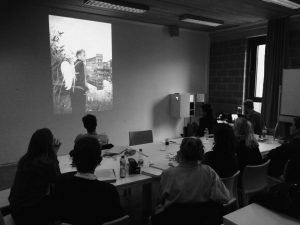
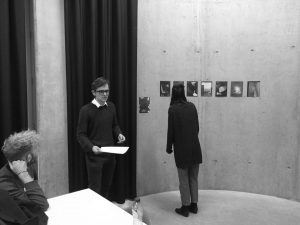
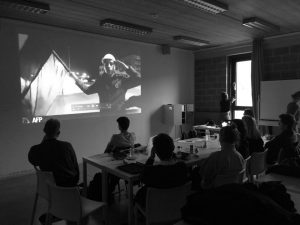
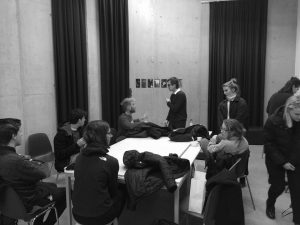
#brussels – workshops lead by Liesbeth Decan, Luca School of Arts
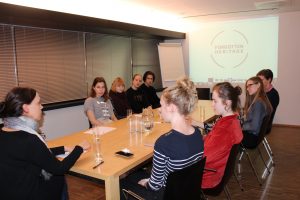
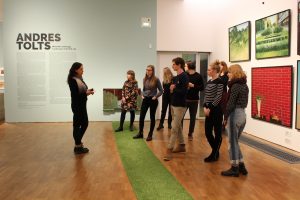
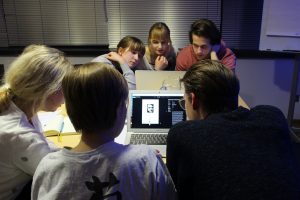
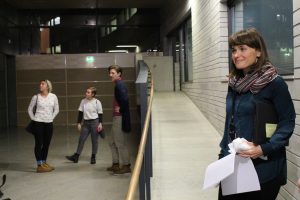
#tallinn and workshops at Kumu Art Museum – treiners: Anu Allas & Annika Raim
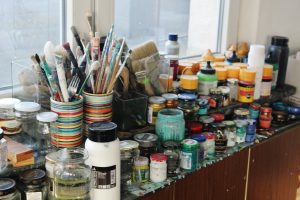
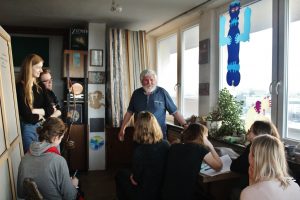
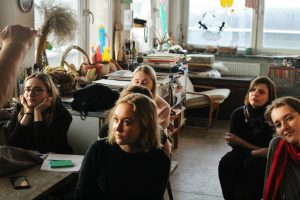
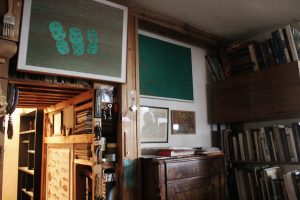
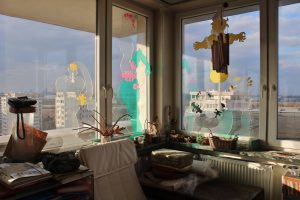
#warsaw – we visited artists’ studios – here, at Jan Dobkowski’s place
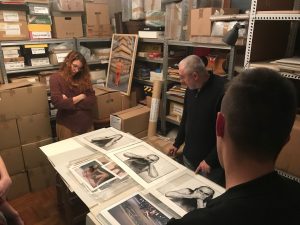
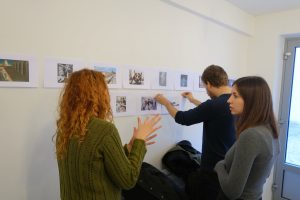
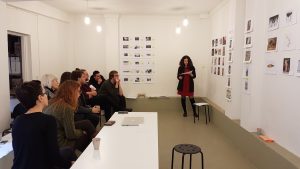
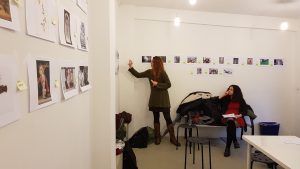
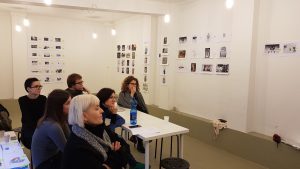
#zagreb – workshops at Spot Gallery and visit at Tomislav Gotovac studio
***
Material presented at the conference “Revisiting Heritage” is available online:
***
Conference “Revisiting Heritage” – 7-8 of June 2018, National Museum, Warsaw
The great interest in neo-avant-garde art, especially from ex-socialist European states, which we are witnessing during the last decade, confronts art historians and other researchers in the field with new and raising questions about methodology, the interpretation and reinterpretation of dominant narratives and the “official art history”. This becomes more acute when dealing with so-called “new media” art. How to approach this huge body of material found in official (state) archives as well as “private archives” of artists and collectors? For example, on an interpretational level, is there a common source in neo-avant-garde practices throughout Europe that has been missed in dominant west-oriented canons? Or should researchers instead focus on the particularities having in mind different geo-political as well as social circumstances? These kind of questions raised frequently during the research process of the FORGOTTEN HERITAGE project. Gathering researchers from Poland, Estonia, Belgium and Croatia, the project focused on neo-avant-garde practices in the countries of the “European rim”, with the aim of (re)discovering, (re)interpreing and promoting art practices that were mostly forgotten in the official international histories of avant-garde art. In our opinion we can change this situation by sharing digitalized artworks. Today it seems its a common practice, but the question is if we use its all potential. This is why the core of our “FH” platform is the digitalized database, the repository, where we share a big number of data, like artists bios, critical texts and possible connections on many levels that link our artist together. Using the tools of digital humanities, this project will deliver an online platform – a repository with a vast amount of data and descriptions of particular artists and artworks but also revealing connections between artists and institutions throughout Europe. The political and social situation before and after the fall of the Iron Curtain has shaped an artistic map that abounds in blank spots. Dominant narratives of continuous division between East and West discouraged research focused on the connections and similarities between artistic practices and the mutual impact from the late 60s onward. By having in mind the discontinuous and porous character of the Iron Curtain, the conference invites scholars who research different dynamics within “uncanonical” artistic centers and exchanges between artists in the East and West. The barrier had a dissimilar impact in different periods of post-war history in Europe. Obviously, it was also not the only line that formed exclusions for these are present in every environment and result from both general and personal factors. The political turn at the early 1990s abolished the division between the East and the West only to a certain degree, and in many situations it seems to have contributed to a further loss of contact with the past. At the same time it revealed that the so-called artistic margins were extremely productive. Seen from the current perspective, the space “beyond” mainstream turns out to be much broader than it appeared from the vantage point of time and geography of the Cold War, which flattened and simplified the image of the world. In this case, “loss” is not only a figure of speech. Addressing the situation, we realize now how many works by artists who shaped the art scene in the 1960s, 1970s and 1980s failed to enter the museum as a result of neglection (at a global and local scale) and remained at the artists’ studios or apartments – inaccessible or poorly accessible to researchers, let alone viewers. The contemporary multitude of narrations, which we are witnessing at the moment favors challenging the (genuinely or seemingly) consolidated visions of the past and gives rise to several questions: What are the motivations of our research of this particular art of the past? Do our investigations imply that we still refer to a certain canon that we aim to verify? If so, what canon is it and who needs it? How do we search? What do we find? Can artists have a real influence on the present by managing their past, making it available, mythologizing it, rationing it? What are their strategies pertaining to the past and what strategies can be adopted by institutions? Can we reclaim something that was once forgotten? To which degree the digitisation of the artefacts and artworks from the past may re-create the image of art of the past and influence the image of the present? Is it possible to build a history that largely reflects our common experience even though we did not fully realise it? Researchers dealing with private archives of artists, who either worked in Central or Eastern Europe or had connections with these regions, are especially encouraged to propose papers so that research methodology can be discussed. The conference REVISITING HERITAGE aiming to examine the ways of discovering and revealing the past of art and the reasons to do it.
PROGRAM: 07.06.2018
9.00-9.30 – REGISTRATION & WELCOME
PANEL 9.40 – 11.30 (moderator: Alicja Latkowska)
Liesbeth DECAN – A View on Belgian Art
Sandra Križić Roban – Not only on Women’s Day – women in Croatian photography after the 1950’
Annika RÄIM- Collecting avant-garde art in Art Museum of Estonia
Marika KUŹMICZ – Beyond the Frame. New Media And Female Polish Artists
COFFE BREAK 11.30-12.00
PANEL 12.00 – 14.30 (moderator: Ewa Skolimowska)
Leonida KOVAČ – Heritage, Legacy, Tradition, Transmission, Transformation, and So Forth
Elnara TAIDRE – Discovering a Total Work of Art in the Home (and) Archive of Tõnis Vint
Lana LOVRENČIĆ – The Petar Dabac Archive
Radek PRZEDPELSKI – Elements of Think Crazy Topology. Encountering the Neo-Avant-Garde Practices of Marek Konieczny
Peter TUKA – Avant-Garde and Post-War Totalitarianism: Július Koller and Conceptual Art under Communism
14.30 – 15.30 LUNCH BREAK
PANEL 15.30. -17.30 (moderator: Magdalena Nowak)
Wiktoria SZCZUPACKA – Foksal Gallery, Women and Labour of Love in the 1960s and 1970s
Marie-Pascale GILDEMYN – The “Wide White Space” Gallery in Antwerp – 1966-1976
Petra SKARUPSKY – Official exhibitions from Czechoslovakia (ČSSR) in Poland (PRL) as a tool for re-mapping history of art in Central Eastern Europe during the Cold War
08.06.2018
PANEL 10.00 – 11.30 (moderator: Hanna Doroszuk)
Łukasz JASTRUBCZAK – Memories of The Last Exhibition
Karol RADZISZEWSKI – Queer Archives Institute. Institution as an art practice
Agnieszka POLSKA – screening of the film ‘The Garden’
COFFEE BREAK 11.30-12.00
PANEL 12.00-13.30 (moderator: Magdalena Wróblewska)
Pavlina MORGANOVA – Performance Art – Remembered, Photographed and Filmed, Exhibited and Sometimes even Reenacted
DANIEL MUZYCZUK – Is it right to perform an installation? Between reconstruction and performance of a score
AGNE NARUSITE – The Aestetics of Boredom In Lituanian Photograph
COFFE BREAK 13.30-14.00
PANEL 14.00-15.30 (moderator: Marika Kuźmicz)
Barbara BORCIC – DIVA Station and Artists’ Archives
Laura LEUZZI – Identitet=identità, the 1976 Video Encounter in Motovun. Early experimentation and exchanges between Yugoslavia and Italy in the field of video
The conference is organised by Arton Fondation (Warsaw) in cooperation with KUMU Art Museum of Estonia (Tallinn), Office for Photography (Zagreb) and LUCA School of Arts (Brussels) as a part of the international project FORGOTTEN HERITAGE – European Avant-Garde Art Online. The official language of the conference is English.
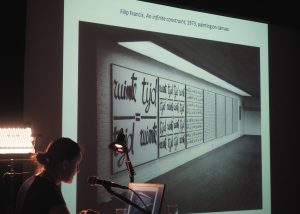
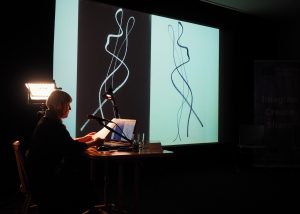
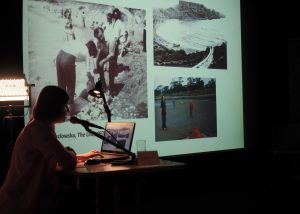
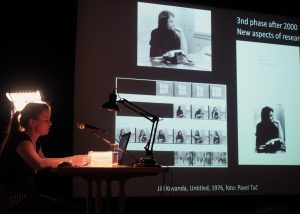
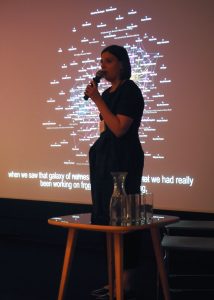
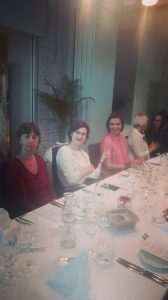
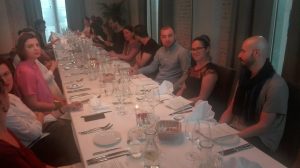
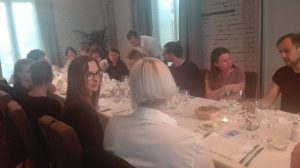
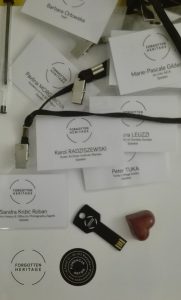
****
It looks like our research for this project is done. Our new database is almost ready for being open for the audience. We and our Partners visited many places like artists’ studios, libraries, institutions’ archive to find works, documents, photographs for our repository. Some of them were really “forgotten”….
We uploaded over 8000 scans. But it doesn’t mean our research is really “done”. Still a lot of works from Poland, but we know also from Croatia, from Estonia, Belgium and many other countries are waiting for beeing re-discovered. Our database will be open not only for users as researchers, art historians and curators, it will also open for
Look, where have we been during last year 🙂





We had really good so called “mid-term meeting” of our Staff. It was good to have the team in Warsaw again.
We talked about the project, planned our conference that will take place in Warsaw in spring 2018 and summed up or long term archive research. We learned a lot about our domestic art during this process, now the time has come for finding out about… each other. That was the core of our project at the beginning. For this we had also skype-conference with Kilian Krug from Plural, Berlin, who guided team, how to build connections into our database. The results exceeded expectations and our repository looks like a kind of universe.
Then our guests participated into the first workshop for students and we also found some time for visiting together a few exhibitions.
Our workshops in Warsaw (in collaboration with the Academy of Fine Arts will start in November), so stay tuned!


Currently we are working on our new innovative database, created by Plural collective based in Beriln (www.pluralnet.de). The database will include circa 8000 images of European avant-garde art. That is why, during last few months, we intensively digitized hundreds of works, photos and video works from dozens of private archives of European artists and public archive of institutions. It is fruitful reaserch, so in September all works will be available on-line. Then, in October, we will start the cycle of workshops for people interested in art, archiving of art and organizing exhibitions. Your are welcome to participate in our workshops. Please fill the application form, you will find below:
FORGOTTEN HERITAGE FORM and send it to Marika Kuźmicz from Arton Foundation () if you are interested in workshop in Warsaw. Info about workshops in Zagreb, Tallinn and Brussels are coming soon.
UPDATE: recruitment is closed
“Forgotten Heritage…” workshops: Bruxells, Tallinn, Warsaw, Zagreb…we had such a great time with our participants, futher curators, scholars, art critics…? For now, four teams created four exhibitions, based on the archives presented on www.forogottenheritage.eu




#brussels – workshops lead by Liesbeth Decan, Luca School of Arts




#tallinn and workshops at Kumu Art Museum – treiners: Anu Allas & Annika Raim





#warsaw – we visited artists’ studios – here, at Jan Dobkowski’s place





#zagreb – workshops at Spot Gallery and visit at Tomislav Gotovac studio
***
Material presented at the conference “Revisiting Heritage” is available online:
***
Conference “Revisiting Heritage” – 7-8 of June 2018, National Museum, Warsaw
The great interest in neo-avant-garde art, especially from ex-socialist European states, which we are witnessing during the last decade, confronts art historians and other researchers in the field with new and raising questions about methodology, the interpretation and reinterpretation of dominant narratives and the “official art history”. This becomes more acute when dealing with so-called “new media” art. How to approach this huge body of material found in official (state) archives as well as “private archives” of artists and collectors? For example, on an interpretational level, is there a common source in neo-avant-garde practices throughout Europe that has been missed in dominant west-oriented canons? Or should researchers instead focus on the particularities having in mind different geo-political as well as social circumstances? These kind of questions raised frequently during the research process of the FORGOTTEN HERITAGE project. Gathering researchers from Poland, Estonia, Belgium and Croatia, the project focused on neo-avant-garde practices in the countries of the “European rim”, with the aim of (re)discovering, (re)interpreing and promoting art practices that were mostly forgotten in the official international histories of avant-garde art. In our opinion we can change this situation by sharing digitalized artworks. Today it seems its a common practice, but the question is if we use its all potential. This is why the core of our “FH” platform is the digitalized database, the repository, where we share a big number of data, like artists bios, critical texts and possible connections on many levels that link our artist together. Using the tools of digital humanities, this project will deliver an online platform – a repository with a vast amount of data and descriptions of particular artists and artworks but also revealing connections between artists and institutions throughout Europe. The political and social situation before and after the fall of the Iron Curtain has shaped an artistic map that abounds in blank spots. Dominant narratives of continuous division between East and West discouraged research focused on the connections and similarities between artistic practices and the mutual impact from the late 60s onward. By having in mind the discontinuous and porous character of the Iron Curtain, the conference invites scholars who research different dynamics within “uncanonical” artistic centers and exchanges between artists in the East and West. The barrier had a dissimilar impact in different periods of post-war history in Europe. Obviously, it was also not the only line that formed exclusions for these are present in every environment and result from both general and personal factors. The political turn at the early 1990s abolished the division between the East and the West only to a certain degree, and in many situations it seems to have contributed to a further loss of contact with the past. At the same time it revealed that the so-called artistic margins were extremely productive. Seen from the current perspective, the space “beyond” mainstream turns out to be much broader than it appeared from the vantage point of time and geography of the Cold War, which flattened and simplified the image of the world. In this case, “loss” is not only a figure of speech. Addressing the situation, we realize now how many works by artists who shaped the art scene in the 1960s, 1970s and 1980s failed to enter the museum as a result of neglection (at a global and local scale) and remained at the artists’ studios or apartments – inaccessible or poorly accessible to researchers, let alone viewers. The contemporary multitude of narrations, which we are witnessing at the moment favors challenging the (genuinely or seemingly) consolidated visions of the past and gives rise to several questions: What are the motivations of our research of this particular art of the past? Do our investigations imply that we still refer to a certain canon that we aim to verify? If so, what canon is it and who needs it? How do we search? What do we find? Can artists have a real influence on the present by managing their past, making it available, mythologizing it, rationing it? What are their strategies pertaining to the past and what strategies can be adopted by institutions? Can we reclaim something that was once forgotten? To which degree the digitisation of the artefacts and artworks from the past may re-create the image of art of the past and influence the image of the present? Is it possible to build a history that largely reflects our common experience even though we did not fully realise it? Researchers dealing with private archives of artists, who either worked in Central or Eastern Europe or had connections with these regions, are especially encouraged to propose papers so that research methodology can be discussed. The conference REVISITING HERITAGE aiming to examine the ways of discovering and revealing the past of art and the reasons to do it.
PROGRAM: 07.06.2018
9.00-9.30 – REGISTRATION & WELCOME
PANEL 9.40 – 11.30 (moderator: Alicja Latkowska)
Liesbeth DECAN – A View on Belgian Art
Sandra Križić Roban – Not only on Women’s Day – women in Croatian photography after the 1950’
Annika RÄIM- Collecting avant-garde art in Art Museum of Estonia
Marika KUŹMICZ – Beyond the Frame. New Media And Female Polish Artists
COFFE BREAK 11.30-12.00
PANEL 12.00 – 14.30 (moderator: Ewa Skolimowska)
Leonida KOVAČ – Heritage, Legacy, Tradition, Transmission, Transformation, and So Forth
Elnara TAIDRE – Discovering a Total Work of Art in the Home (and) Archive of Tõnis Vint
Lana LOVRENČIĆ – The Petar Dabac Archive
Radek PRZEDPELSKI – Elements of Think Crazy Topology. Encountering the Neo-Avant-Garde Practices of Marek Konieczny
Peter TUKA – Avant-Garde and Post-War Totalitarianism: Július Koller and Conceptual Art under Communism
14.30 – 15.30 LUNCH BREAK
PANEL 15.30. -17.30 (moderator: Magdalena Nowak)
Wiktoria SZCZUPACKA – Foksal Gallery, Women and Labour of Love in the 1960s and 1970s
Marie-Pascale GILDEMYN – The “Wide White Space” Gallery in Antwerp – 1966-1976
Petra SKARUPSKY – Official exhibitions from Czechoslovakia (ČSSR) in Poland (PRL) as a tool for re-mapping history of art in Central Eastern Europe during the Cold War
08.06.2018
PANEL 10.00 – 11.30 (moderator: Hanna Doroszuk)
Łukasz JASTRUBCZAK – Memories of The Last Exhibition
Karol RADZISZEWSKI – Queer Archives Institute. Institution as an art practice
Agnieszka POLSKA – screening of the film ‘The Garden’
COFFEE BREAK 11.30-12.00
PANEL 12.00-13.30 (moderator: Magdalena Wróblewska)
Pavlina MORGANOVA – Performance Art – Remembered, Photographed and Filmed, Exhibited and Sometimes even Reenacted
DANIEL MUZYCZUK – Is it right to perform an installation? Between reconstruction and performance of a score
AGNE NARUSITE – The Aestetics of Boredom In Lituanian Photograph
COFFE BREAK 13.30-14.00
PANEL 14.00-15.30 (moderator: Marika Kuźmicz)
Barbara BORCIC – DIVA Station and Artists’ Archives
Laura LEUZZI – Identitet=identità, the 1976 Video Encounter in Motovun. Early experimentation and exchanges between Yugoslavia and Italy in the field of video
The conference is organised by Arton Fondation (Warsaw) in cooperation with KUMU Art Museum of Estonia (Tallinn), Office for Photography (Zagreb) and LUCA School of Arts (Brussels) as a part of the international project FORGOTTEN HERITAGE – European Avant-Garde Art Online. The official language of the conference is English.









****
It looks like our research for this project is done. Our new database is almost ready for being open for the audience. We and our Partners visited many places like artists’ studios, libraries, institutions’ archive to find works, documents, photographs for our repository. Some of them were really “forgotten”….
We uploaded over 8000 scans. But it doesn’t mean our research is really “done”. Still a lot of works from Poland, but we know also from Croatia, from Estonia, Belgium and many other countries are waiting for beeing re-discovered. Our database will be open not only for users as researchers, art historians and curators, it will also open for
Look, where have we been during last year 🙂





We had really good so called “mid-term meeting” of our Staff. It was good to have the team in Warsaw again.
We talked about the project, planned our conference that will take place in Warsaw in spring 2018 and summed up or long term archive research. We learned a lot about our domestic art during this process, now the time has come for finding out about… each other. That was the core of our project at the beginning. For this we had also skype-conference with Kilian Krug from Plural, Berlin, who guided team, how to build connections into our database. The results exceeded expectations and our repository looks like a kind of universe.
Then our guests participated into the first workshop for students and we also found some time for visiting together a few exhibitions.
Our workshops in Warsaw (in collaboration with the Academy of Fine Arts will start in November), so stay tuned!


Currently we are working on our new innovative database, created by Plural collective based in Beriln (www.pluralnet.de). The database will include circa 8000 images of European avant-garde art. That is why, during last few months, we intensively digitized hundreds of works, photos and video works from dozens of private archives of European artists and public archive of institutions. It is fruitful reaserch, so in September all works will be available on-line. Then, in October, we will start the cycle of workshops for people interested in art, archiving of art and organizing exhibitions. Your are welcome to participate in our workshops. Please fill the application form, you will find below:
FORGOTTEN HERITAGE FORM and send it to Marika Kuźmicz from Arton Foundation () if you are interested in workshop in Warsaw. Info about workshops in Zagreb, Tallinn and Brussels are coming soon.
UPDATE: recruitment is closed
